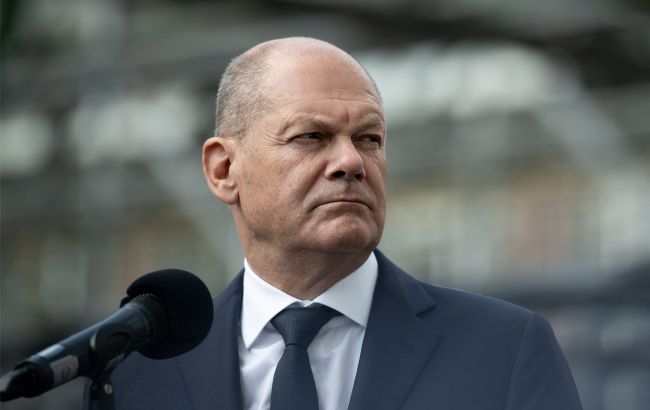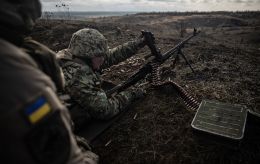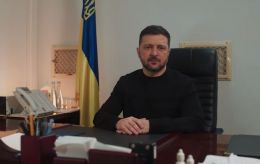Scholz ruled out supplying long-range weapons to Ukraine regardless of NATO's decisions
 German Chancellor Olaf Scholz (photo: Getty Images)
German Chancellor Olaf Scholz (photo: Getty Images)
German Chancellor Olaf Scholz has ruled out supplying Ukraine with long-range precision weapons in the future. This issue will not depend on the decisions of the Alliance partners, according to his interview for Radio Berg.
It is noted that during a conversation with citizens in the city of Prenzlau (Brandenburg), Scholz confirmed his refusal to supply Taurus cruise missiles (with a range of about 500 km) on the grounds that it would entail a “serious risk of escalation.”
“I said no. And, of course, this also applies to other weapons, if we were to supply them, that could shoot there from such a long distance. This (decision - ed.) remains in force... Even if other countries decide otherwise,” the German chancellor said.
Radio Berg reminds that President of Ukraine Volodymyr Zelenskyy has repeatedly appealed to allies to provide our country with long-range weapons to be able to attack Russian logistics and military airfields far away from the front lines in Russia.
As of today, the longest-range weapon supplied by Germany is the Mars II missile system, which can hit targets at a distance of 84 kilometers.
At the same time, the German government has authorized the use of this weapon or the PzH 2000 self-propelled howitzer (with a range of 56 kilometers) only in a limited area around Kharkiv against targets on Russian soil.
US and British actions and threats to Russia
Radio Berg added that the United States, Britain, and France have supplied Ukraine with cruise missiles with a range of up to 300 kilometers.
There is currently a discussion about whether these weapons should be allowed to be used against targets in Russia. In particular, US President Joe Biden and British Prime Minister Keir Starmer met in Washington on Friday but did not make a final decision.
Earlier, Russian leader Vladimir Putin said that he would consider the use of Western long-range precision weapons against targets deep inside Russia as NATO's participation in the war.
“This will mean that NATO countries, the United States, and European countries are at war with Russia,” he said.

